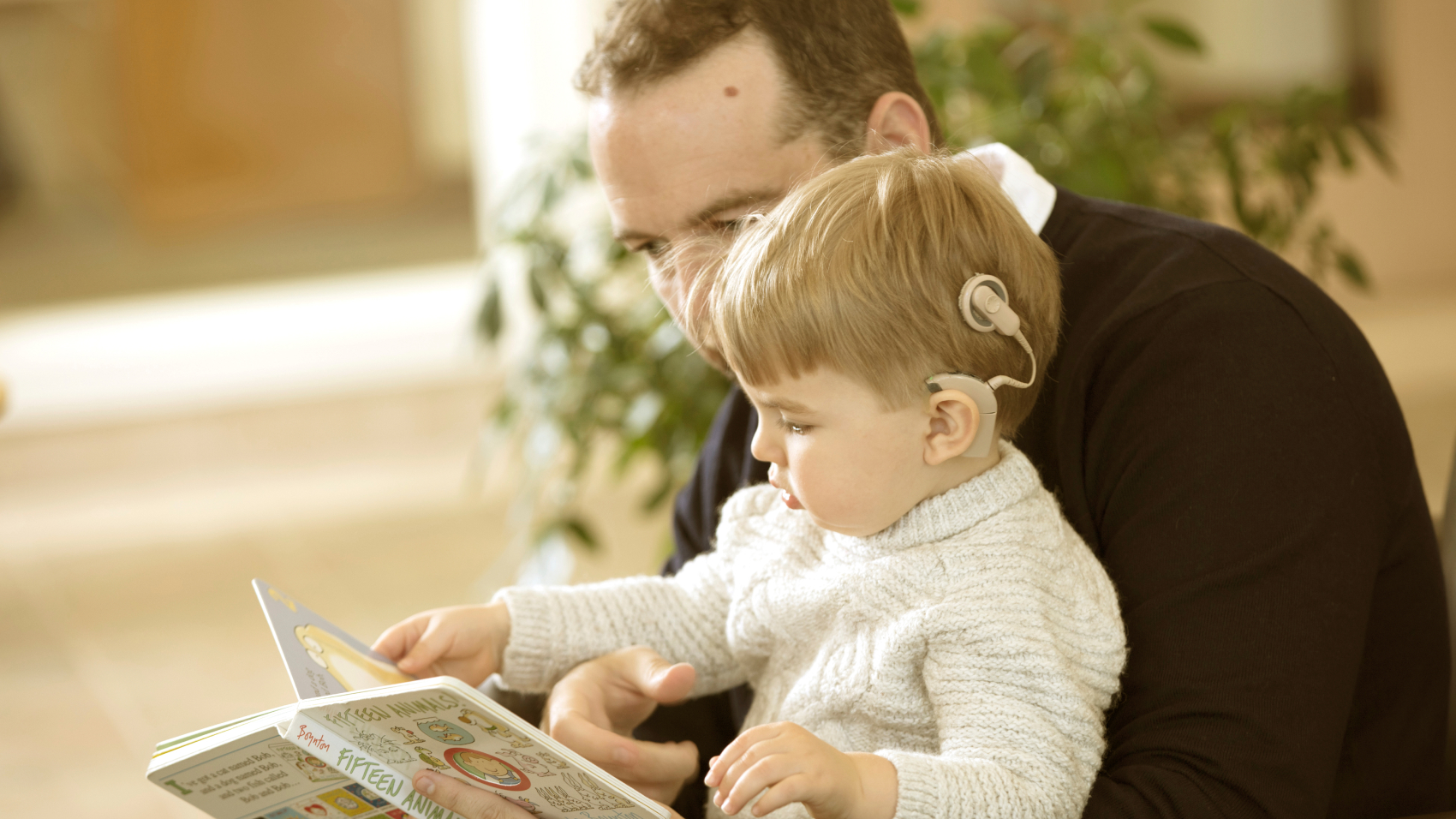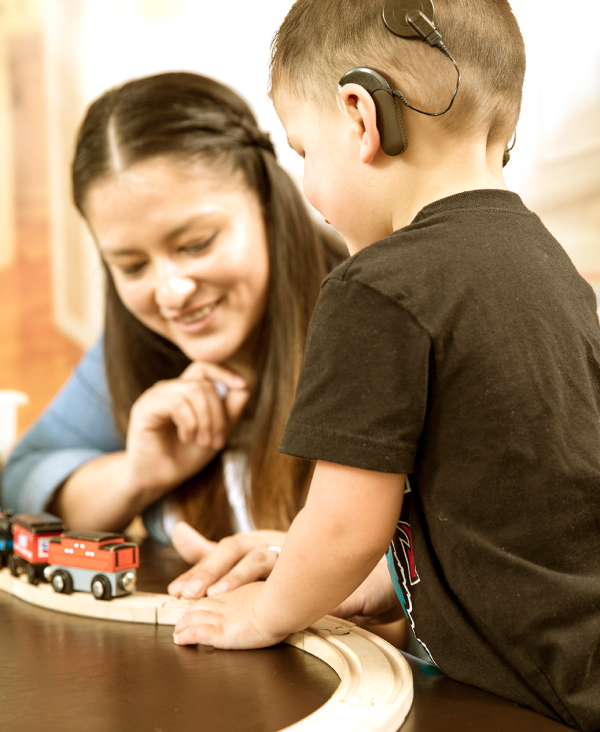Hearing lays the foundation of brain development and helps each child grow up to reach their full potential.
Parents must know the status of their baby's hearing so they can best support their child's brain development. That’s why the newborn hearing screening is so fundamentally important. Yet, despite the increased focus and widespread availability of the newborn hearing screening, there continues to be a significant problem. Across the country, 1 in 4 infants who do not pass the screening do not receive recommended follow-up care (known as a loss to follow-up), or the information is not reported to the state (known as a loss to documentation).
The Oberkotter Foundation wanted to gain a better understanding of the barriers and challenges facing parents that prevent follow-up because we know the first days and weeks are critical for a baby’s brain development. Extensive first-hand research was conducted to understand how to better support families, including conversations with parents of children who failed the newborn hearing screening.
The research found that awareness of the newborn hearing screening before delivery is correlated with higher rates of follow-up, but many parents had never heard of it until the results were shared in the hospital. And perhaps most telling was that most had never thought of the possibility of hearing loss until their child failed the screening.
“Many parents read pregnancy and parenting books, take prenatal classes, and tour hospitals in preparation for a new child, especially their first. However, even these highly prepared parents are unaware that newborn hearing screening is a standard hospital procedure prior to sending their baby home. There are many missed opportunities to create awareness of hearing loss among expectant parents.”Kaylin, mother of a baby with delayed follow-up after failed screening
The research uncovered a key insight—when parents were made aware of the importance of hearing for brain development, their sense of urgency to follow up also increased.

Ultimately, the research showed that increased awareness of newborn hearing screening combined with the knowledge of the importance of hearing for brain development can increase the rates by which parents follow up on a failed screening and ultimately reduce delays in amplification or implantation from years or months to those critical early weeks.
In 2021, Hearing First launched the Starts Hear Awareness Campaign to educate, empower, and equip expectant parents about newborn hearing health and early brain development so they will take immediate action following a failed newborn hearing screening.
Reaching soon-to-be moms where they spend their time can be difficult, so the campaign needed a creative design and engaging messages that would grab the attention of expectant and new moms. The campaign’s eye-catching design centered on parents’ dreams for their little ones. The bright and colorful campaign images share a simple, memorable, and actionable message to raise awareness and underscore the urgency of hearing for brain development.
Several organizations have joined with the Oberkotter Foundation and Hearing First to expand the reach of the campaign, including:
These partnerships underscore the importance of newborn hearing screening for all babies and their development, not just those with hearing loss.
In just the first four years, campaign messages have been viewed over 904 million times by expectant parents across the country, with over 1.7 million visitors to the campaign's website, StartsHear.org. The data shows the campaign is working and increasing expectant mom’s awareness of the urgency of newborn hearing.
You can find out more about the Starts Hear campaign and its impact on the Hearing First website.
Download the latest report to see how the campaign has successfully raised awareness among new and expectant moms.
Download the Report
